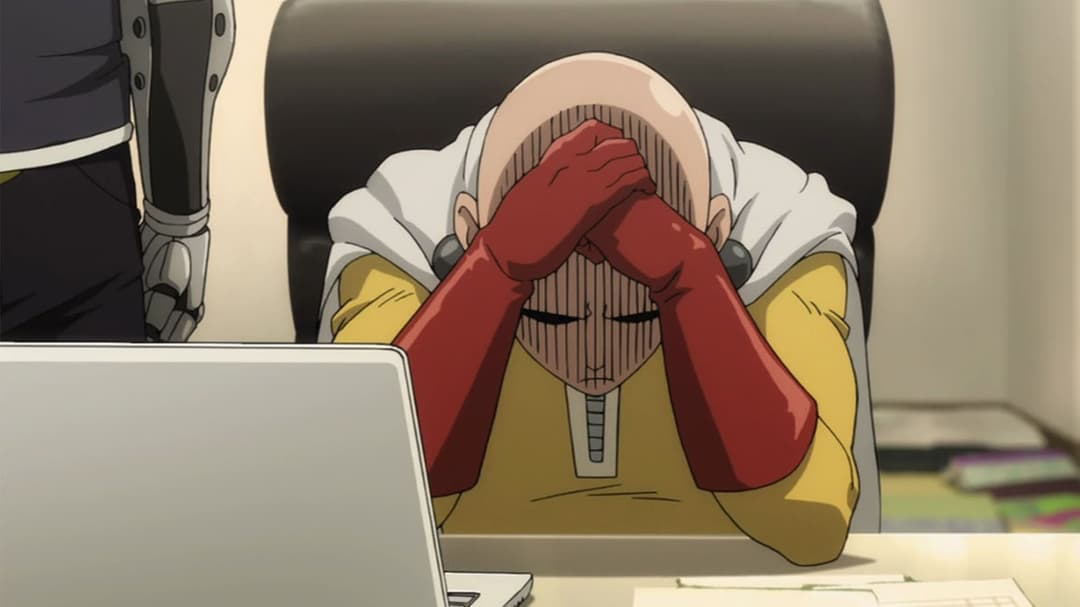Entertainment
One Punch Man Season 3 Director Leaves Social Media Amid Backlash

The director of the widely acclaimed anime series One Punch Man, Shinpei Nagai, has deactivated his social media account following intense criticism regarding the animation quality of the show’s third season. This decision comes amidst a wave of backlash from fans who are expressing their dissatisfaction with the series’ latest episodes.
Since its debut in 2015, One Punch Man has garnered significant praise for its exceptional animation and visual storytelling. The first season, produced by Madhouse, was celebrated for its strikingly fluid animation, particularly during fight scenes. In contrast, the second season, which premiered in 2019 and was animated by J.C. Staff, faced heavy criticism due to a noticeable decline in quality. Fans were particularly disheartened by the shift in animation style and production values.
As the series transitioned to its third season, many hoped for improvements. Unfortunately, early reviews suggest a recurrence of issues experienced in season two. The situation has escalated to the point where Nagai felt compelled to address the growing discontent publicly.
Director’s Response to Backlash
In a statement posted on X, Nagai expressed his distress over the harassment he has faced. He noted that some individuals among his followers were engaging in “rage-baiting,” which contributed to his decision to leave the platform. He stated, “There are a few people among my followers who are pretending to be allies but are actually engaging in rage-baiting… I’ve come to the conclusion that continuing in this environment is untenable for this project.”
Nagai’s remarks highlight the toxicity often encountered in the anime community. He emphasized that “it’s always the genuine fans who end up suffering the most,” lamenting how negative behavior can tarnish the hard work of creators and staff. The director also mentioned the toll this harassment has taken on his mental health, indicating that he will not create any further accounts on X.
Despite facing significant backlash, Nagai expressed gratitude to the fans who have supported him. “To the fans who have been truly kind to me, I want to express my gratitude and apologies. It was truly enjoyable,” he concluded.
A Wider Issue in the Anime Industry
Nagai’s experience is not an isolated incident in the anime industry. Many creators and voice actors have faced harassment and threats over the years. For instance, Hajime Isayama, the author of Attack on Titan, received over 1,000 death threats following the series’ publication, illustrating the extreme pressures placed on those involved in anime production.
This troubling trend raises concerns about the culture surrounding anime and its communities. As the industry continues to grow, the need for a more constructive and respectful dialogue between creators and fans becomes increasingly important.
Despite Nagai’s defense of the third season’s visuals in September, which urged fans to “stop with the harassment,” the criticism continues. The season’s premiere achieved a lower rating than its recap episode, marking a first for the series and indicating that viewer dissatisfaction remains high.
As One Punch Man navigates these challenging waters, the hope is that both fans and creators can foster a healthier environment that appreciates the art of anime while addressing legitimate concerns without resorting to hostility.
-

 Entertainment2 months ago
Entertainment2 months agoAnn Ming Reflects on ITV’s ‘I Fought the Law’ Drama
-

 Entertainment3 months ago
Entertainment3 months agoKate Garraway Sells £2 Million Home Amid Financial Struggles
-

 Health2 months ago
Health2 months agoKatie Price Faces New Health Concerns After Cancer Symptoms Resurface
-

 Entertainment2 months ago
Entertainment2 months agoCoronation Street’s Carl Webster Faces Trouble with New Affairs
-

 Entertainment2 months ago
Entertainment2 months agoWhere is Tinder Swindler Simon Leviev? Latest Updates Revealed
-

 Entertainment3 months ago
Entertainment3 months agoKim Cattrall Posts Cryptic Message After HBO’s Sequel Cancellation
-

 Entertainment1 month ago
Entertainment1 month agoOlivia Attwood Opens Up About Fallout with Former Best Friend
-

 Entertainment2 months ago
Entertainment2 months agoMasterChef Faces Turmoil as Tom Kerridge Withdraws from Hosting Role
-

 Entertainment3 months ago
Entertainment3 months agoSpeculation Surrounds Home and Away as Cast Departures Mount
-

 World2 months ago
World2 months agoCole Palmer’s Mysterious Message to Kobbie Mainoo Sparks Speculation
-

 Entertainment2 months ago
Entertainment2 months agoITV’s I Fought the Law: Unraveling the True Story Behind the Drama
-

 Entertainment3 months ago
Entertainment3 months agoMarkiplier Addresses AI Controversy During Livestream Response









